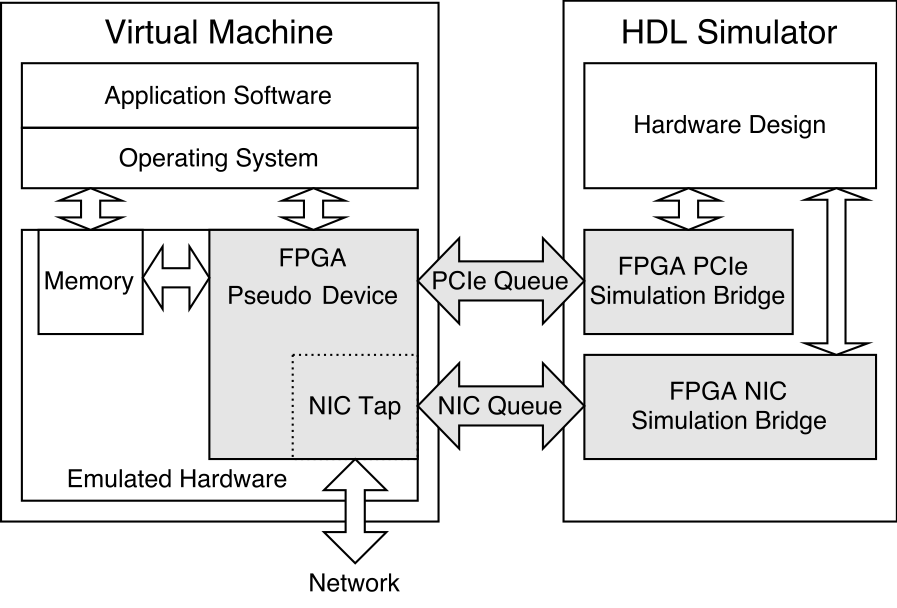Peter Milder
New paper on VM-HDL co-simulation framework to appear at FPGA18
Our new paper, which describes our recent work on creating a framework that allows co-simulation of server systems with PCIe-connected FPGAs, has been accepted to appear at FPGA 2018. We are also planning an open source release of this framework.
“A Full-System VM-HDL Co-Simulation Framework for Servers with PCIe-Connected FPGAs.” Shenghsun Cho, Mrunal Patel, Han Chen, Peter Milder, and Michael Ferdman. To appear at FPGA 2018.

Abstract: The need for high-performance and low-power acceleration technologies in servers is driving the adoption of PCIe-connected FPGAs in datacenter environments. However, the co-development of the application software, driver, and hardware HDL for server FPGA platforms remains one of the fundamental challenges standing in the way of wide-scale adoption. The FPGA accelerator development process is plagued by a lack of comprehensive full-system simulation tools, unacceptably slow debug iteration times, and limited visibility into the software and hardware at the time of failure.
In this work, we develop a framework that pairs a virtual machine and an HDL simulator to enable full-system co-simulation of a server system with a PCIe-connected FPGA. Our framework enables rapid development and debugging of unmodi ed application software, operating system, device drivers, and hardware design.
Once the system is debugged, neither the software nor the hardware requires any changes before being deployed in a production environment. In our case studies, we nd that the co-simulation framework greatly improves debug iteration time while providing invaluable visibility into both the software and hardware components.
Please click here for a pre-print [pdf].
This entry was posted on December 01, 2017.